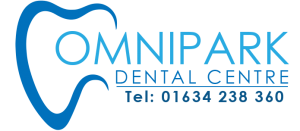Your Oral Health Matters to Us
Preventive Dentistry
Helps to avoid cavities, gum disease, enamel wear, and more.
Book an Appointment
TREATMENT OPTIONS
Not all of the following procedures will work for everyone.
Our dentist can help you determine which method will work the best for enhancing your smile.
Bad Breath Dental
Bleeding Gums - not normal
Screening for gum disease forms an integral part of your routine examination.
What is gum disease?
Gum disease describes swelling, soreness or infection of the tissues supporting the teeth. There are two main forms of gum disease: gingivitis and periodontal disease.
What is gingivitis?
Gingivitis means inflammation of the gums. This is when the gums around the teeth become very red and swollen. Often the swollen gums bleed when they are brushed during cleaning.
Oral care for children
Our Dentists aim to prevent dental disease rather than treat it at a later date. Fluoride applications and fissure sealants (tooth coloured sealants) are applied to biting surfaces of children’s teeth to prevent decay.
Tooth Decay Detection
Decay may or may not cause discomfort; even though it doesn’t hurt, the tooth is deteriorating. Using higher magnification and powerful lighting, it is easier to detect decay at an early stage to prevent excessive tooth damage. When cavities are small, they are much easier and less expensive to treat. Early tooth decay does not tend to show many physical signs. Sometimes the tooth looks healthy, but your dentist will be able to see from an x-ray whether you have any decay under the enamel, any possible infections in the roots, or any bone loss around the tooth.
Hygiene
Dental hygiene treatment includes professionally cleaning the teeth for the patient. This is usually called scaling and polishing. However, perhaps our most important role is showing the patient the best way to keep the teeth free of plaque. The dentist also plays an important role in treating gum disease.
Mouth Cancer Screening
Mouth cancer is a malignant growth that can occur in any part of the mouth, including the tongue, lips and throat. Mouth cancers have a higher proportion of deaths per number of cases than breast cancer, cervical cancer or skin melanoma. The mortality rate is just over 50%, despite treatment, with about 1,700 deaths per year in the UK. This is because of late detection. Visit your dentist at once if you notice any abnormal problems or are not sure. Regular dental checkups allow early detection of abnormalities in the mouth.
